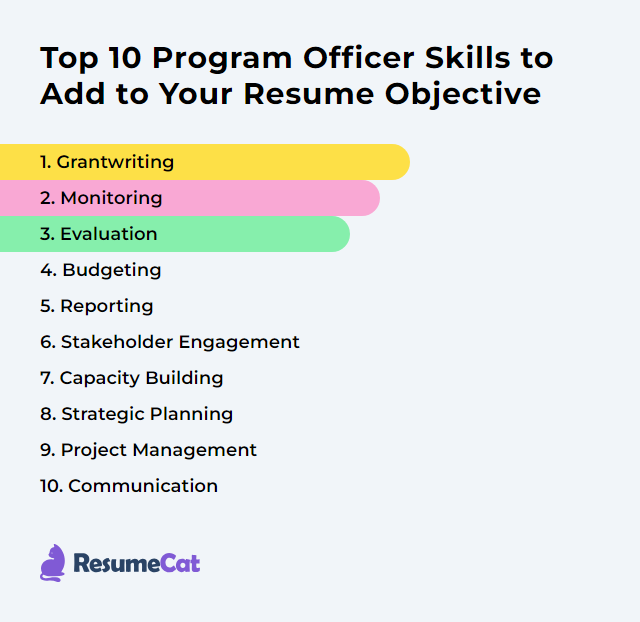What is the Interesting Role of a Program Officer?
Table of Contents

- jaro education
- 10, December 2024
- 4:00 pm
In the complex world of organisational success, the Program Officer plays an integral role in ensuring that programs are efficiently planned, executed, and evaluated. From overseeing diverse initiatives to acting as a bridge between management and teams on the ground, program officers are at the heart of program delivery. But what exactly does their role encompass? Let’s delve deeper into the responsibilities, skills, and opportunities associated with this profession.
The Core Responsibilities of a Program Officer
The Program Officer operates within the broader framework of a Program Management Office (PMO) or similar organisational structures. Their duties span multiple domains, including strategy, planning, monitoring, and reporting. Key responsibilities include:
1. Programme Planning and Design
-
- Conducting needs assessments.
- Collaborating with stakeholders to define objectives.
- Creating detailed program plans and timelines.
2. Resource Allocation and Budget Management
-
- Allocating resources effectively.
- Tracking expenses to avoid budget overruns.
- Preparing financial reports.
3. Monitoring and Evaluation
-
- Developing key performance indicators (KPIs).
- Regularly reviewing milestones and deliverables.
- Producing detailed evaluation reports to inform future initiatives.
4. Stakeholder Engagement
-
- Coordinate with donors, partners, and beneficiaries.
- Address concerns or conflicts as they arise.
- Maintain transparency and strong communication channels.
5. Reporting and Documentation
Creating detailed and accurate reports is another core responsibility. These reports are shared with senior management, funders, and other relevant parties to ensure accountability. Documentation also serves as a repository of knowledge for future reference and scaling successful programs.
Skills and Qualifications for a Program Officer
To excel in this role, they must possess a mix of technical and interpersonal skills. These include:
- Strong Analytical Abilities: Critical for evaluating program performance and identifying areas for improvement.
- Project Management Skills: Proficiency in managing multiple initiatives simultaneously, often using tools like Microsoft Project or Asana.
- Communication Expertise: Clear and persuasive communication is vital for engaging stakeholders and presenting reports.
- Attention to Detail: Essential for budget tracking, reporting, and ensuring program compliance.
- Adaptability: Program officers often work in dynamic environments requiring quick decision-making.

*ResumeCat
A background in fields such as business administration, public policy, or international development is often preferred. Certifications in project management, such as PMP or PRINCE2, can also enhance a candidate’s prospects.
The Role of Assistant Program Officers
-
- Assisting in data collection and analysis.
- Preparing drafts of reports and budgets.
- Coordinating logistics for program activities.
Career Opportunities and Program Officer Salary
-
- Entry-level program officers can expect to earn between $40,000 and $60,000 annually in the United States.
- Mid-level professionals see salaries ranging from $60,000 to $90,000.
- Senior program officers in specialised fields, such as healthcare or technology, may earn over $100,000 annually.
The Broader Impact of a Program Management Office (PMO)
-
- Projects are aligned with strategic goals.
- Resources are optimally utilised.
- Risks are identified and mitigated proactively.
Challenges Faced by Program Officers
-
- Resource Constraints: Balancing ambitious program goals with limited budgets.
- Stakeholder Conflicts: Managing differing expectations and priorities.
- Time Pressures: Meeting tight deadlines while maintaining quality.
Conclusion
The role of a program officer is dynamic, challenging, and rewarding. Whether working within a Program Management Office, pursuing a career as an Assistant Program Officer, or exploring advanced opportunities, the profession offers immense growth potential. By combining the right skills, experience, and educational qualifications, individuals can not only excel in their roles but also drive transformative change within their organisations.
The impact of program officers extends far beyond their immediate responsibilities. By ensuring effective program design, execution, and evaluation, they contribute to organisational growth and the achievement of strategic goals. For those passionate about making a difference, this career path offers a unique blend of challenges and rewards.
Frequently Asked Questions
A programs officer is responsible for the design, execution, and evaluation of programmes within an organisation. They ensure that programmes align with the organisation’s mission, manage resources efficiently, and maintain strong communication with stakeholders. Key duties include planning and designing program strategies, allocating budgets, monitoring performance, and creating detailed reports to measure the impact of programmes. By acting as a bridge between management and operational teams, program officers play a pivotal role in driving the success of initiatives.
The position of a program officer typically falls under mid-level management. They are senior enough to oversee and coordinate multiple projects or programmes but often report to directors or higher-level executives within the organisation. Program officers lead teams, collaborate with various departments, and make critical decisions to ensure the effectiveness of programmes. Depending on the organisation’s structure, they may also supervise assistant program officers or junior staff.
Program officers need a diverse skill set to excel in their roles. Key skills include strong analytical abilities for evaluating program performance, effective communication to engage stakeholders, and project management expertise to handle multiple initiatives. They must also possess attention to detail for budget tracking and compliance, adaptability to navigate dynamic environments, and leadership qualities to guide teams. Proficiency in tools like Microsoft Project, Asana, or other project management software can further enhance their efficiency.
In India, the salary of a program officer varies based on experience, industry, and location. Entry-level professionals can earn around ₹2,50,000 to ₹4,00,000 per annum. Mid-level program officers see salaries ranging from ₹4,00,000 to ₹6,00,000, while senior professionals in specialised fields may earn higher packages. Factors like the organisation’s size and whether it operates in the non-profit or corporate sector also influence compensation. Assistant program officers, being in junior roles, typically earn slightly less but enjoy opportunities for significant growth over time.









